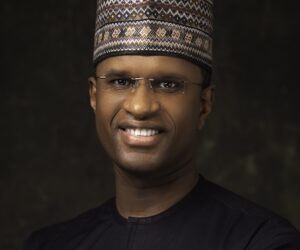On 18–19 September 2025, Akwa Ibom State will host the Akwa Ibom Electricity Summit, a gathering of policymakers, regulators, industry players, investors and development partners. The theme is apt: “Attaining Energy Security and Universal Electricity Access for Akwa Ibom State Within the Framework of the Nigerian Electricity Supply Industry.”
An important moment for Nigeria’s electricity sector
This Summit could not come at a more pivotal moment in what has been a rough road for electricity sector reform in Nigeria. Barely two years have passed since the Fifth Amendment to the 1999 Constitution and the Electricity Act, 2023 were assented to by Presidents Buhari and Tinubu, respectively, conferring on States the unfettered constitutional and statutory authority to establish their own electricity markets. Even though they have had the right to do so since 1963, for the first time since Independence, Nigerian States are acting purposefully to design policies, regulate markets, and license operators to carry on the electricity business within their territories. This has indeed been a long time coming.
Akwa Ibom has seized this opportunity with deliberate care and purpose. The State Government approved a forward-looking Electricity Policy, 2024, and enacted the Akwa Ibom State Electricity Law, 2025. Together, they provide the legal and institutional foundation for a State Electricity Market (SEM) by establishing statutory mandates to put in place the institutions and the electricity market design that are apt for the State at this time.
The paradox of abundance and scarcity
Akwa Ibom’s electricity story captures the paradox of Nigeria itself. The State is resource-rich yet energy-poor. With natural gas processing capacity already in the State sufficient to generate 2,500 MW of power daily, customers in the State currently consume significantly less than 100 MW on average from the national grid. Its flagship Ibom Power Plant has a capacity of 191 MW, but output and evacuation are severely constrained by revenue payment shortfalls from its contractual counterpart, NBET, that prevent it from meeting its obligations to its feedstock gas supplier, Accugas.
Distribution is no better. Despite the State’s massive historical investments into the Port Harcourt Disco (PHED) network, valued as of 2013 as constituting 22% of PHED’s regulatory asset base, infrastructure limits continue to constrain supply while metering penetration and commensurate revenue collection remain weak. On-grid consumption is a dismal 0.1 kWh per capita annually — among the lowest in the world. Leaving things in the hands of a PHED that has been indifferently managed for over a decade is to do the same things repeatedly and expect a different result.
Why this summit matters
So, the Akwa Ibom Electricity Summit is not meant to be, and it will not be, a routine policy talk shop. It is an inflexion point with four unique dimensions. First, policy credibility: with well-crafted Policy and Law in place, the State is not improvising. Second, political will: Governor Umo Eno has placed electricity at the heart of delivering on the State’s socio-economic development programme, called the ARISE Agenda. Third, national significance: Akwa Ibom’s success can serve as a template for other States that are seeking to develop effective pathways to transition away from federal regulation of their electricity markets. Fourth, practical outcomes: the Governor has tied the outcomes from the Summit to an action programme that shows the way to attaining the State’s electricity policy objectives.
The structure of deliberation
The two-day Summit balances reflection, technical insight, and action. Day One focuses on strategic foundations: keynotes from the Minister of Power and the Governor, followed by sessions on the State’s Policy and Law and on the nature of the State’s transition of regulatory responsibility from national to a State regulator. Day Two pivots to the hard work of implementation: a sustainable market design, private sector engagement, financing models and rural electrification strategies. Each session is structured around a panel of expert speakers, discussant reactions, and Q&A. The Summit closes with the unveiling of an Akwa Ibom Electricity Action Programme to be presented to the Governor.
Opportunities for investment and innovation
For investors, Akwa Ibom presents one of the most compelling opportunities in Nigeria’s new electricity landscape. It offers gas-to-power expansion: leveraging the massive reserves in the State for new generation capacity. There are also opportunities to unlock investment in upgrading transmission and distribution networks to deliver the stranded generating capacity lying fallow in the State; in identified and ascertained opportunities to develop the State’s solar, biomass, wind and small hydro resources; consumer solutions — metering, billing and revenue assurance systems; and capital mobilisation.
The political economy test
The reality of reform is that success depends not merely on technical potential but also, very importantly, on political economy choices. Will Akwa Ibom allow cost-reflective tariffs while protecting the poor? Will it insist on regulatory independence despite political pressure? Will it build genuine partnerships across governments and investors rather than capture reform for purely political patronage?
From summit to action
Governor Umo Eno recognises the huge importance of answering these questions transparently. He believes that this Summit must not end with speeches. Rather, it must end with an Action Programme — plans, responsibilities and timelines — to be pursued immediately after the Summit is over. For him, the unveiling of the Policy and Law that he will perform on 18 September during the Summit is not the conclusion; it is the beginning of deliberate, purposeful execution of the Action Programme.
Conclusion: A new chapter
Electricity sector reform is not an abstract policy exercise. It is the foundation of enabling our citizens to live longer and live better. Akwa Ibom now has the tools — Policy, Law, political will, and stakeholder support — to enable this reality. The forthcoming Summit is an opportunity to turn abundance into supply, potential into prosperity, and policy into power, as a launchpad for credible State electricity reform. Akwa Ibom’s success will be further proof that electricity reform is possible, not someday, but now.









